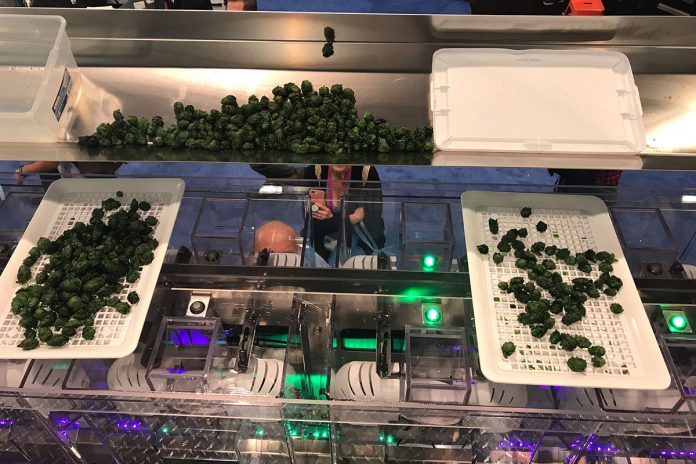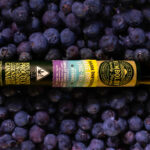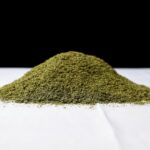The idea of automated cannabis packaging is something that is still new to the cannabis space. After all, just years ago, the fastest operations were still utilizing hand-labor to fill as many packages per hour as possible.
With the maturity of the cannabis and hemp space has come the evolution of automated harvesting technology and machines specifically designed to handle every part of the harvest and packaging process.
However, accompanying that revolution in industry-born equipment is the influx of ‘crossover’ machines, meaning machines that were initially designed for use on products other than cannabis or hemp.
Due to this influx, it’s important to point out several vital advantages to seeking out industry-born equipment over these ‘crossover’ machines.
*Before diving into the specific design differences of the machines, it is also important to note the benefit of working with industry-specific companies who deal exclusively with your specific harvest needs on a daily basis. Companies like Green Vault Systems, as well as GreenBroz, are automated cannabis packaging experts, so the value of their product offerings is supplemented with their fantastic operational knowledge of leading-industry best practices.
As anyone in the cannabis space can tell you, the cannabis/hemp plant is incredibly different and unique to just about any other agricultural commodity of its size.
For instance, items like almonds, peanuts, heck even candies like jellybeans, might all have a similar size to your average cannabis flower, but their market value is drastically different, so it’s easy to see how handling cannabis with equipment designed for almonds would present problems.
Your first consideration might be ‘how is the product treated in the machine?’, as products like almonds, peanuts, jellybeans, etc, have hard surfaces and rough treatment won’t impact final quality. With cannabis, a totally different, much more gentle, approach is needed to ensure proper handling of the flower throughout the harvest process. But we’ll dive into that more in another post.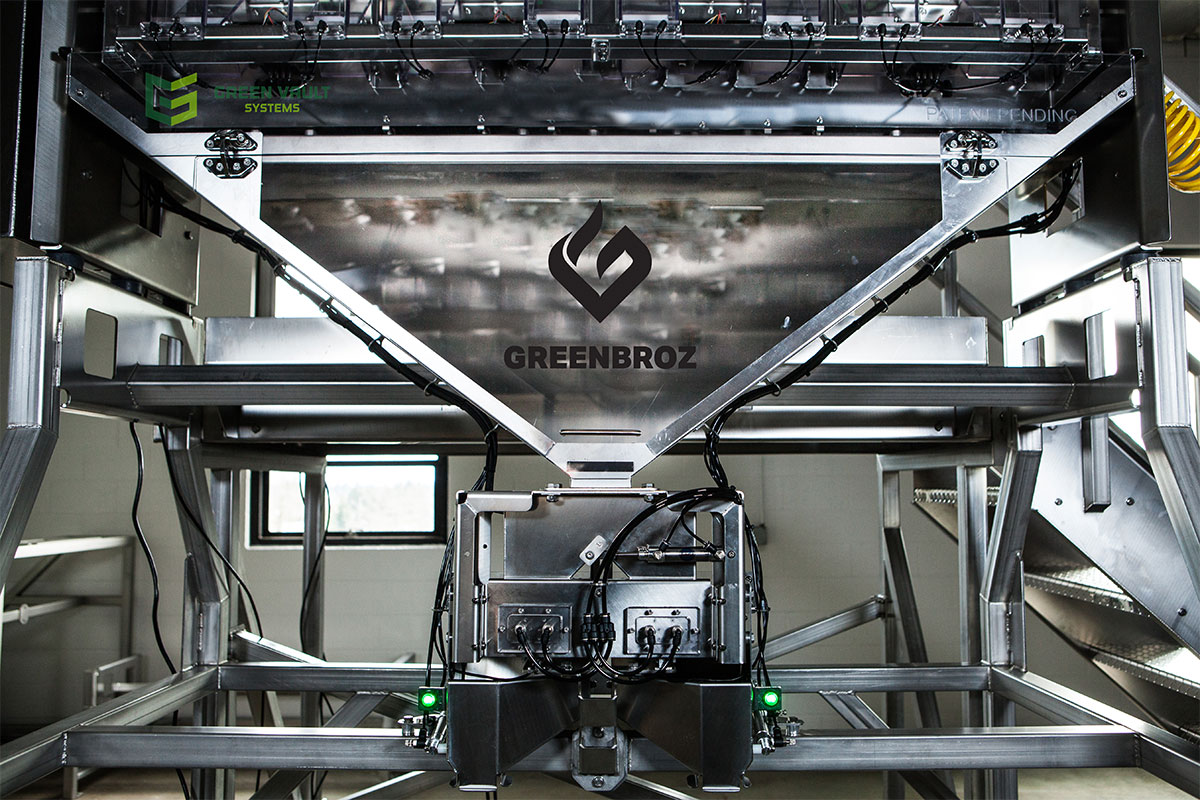
GreenBroz Inc., in collaboration with their premier partners at Green Vault Systems, supplies cultivators with the Precision Batcher, an industry-born machine designed specifically to deal with cannabis and hemp. Let’s compare this industry-born machine to a multi-head weigher that was designed to process low-value items like nuts or hard candies.
The Precision Batcher is designed to carefully move the flower with gentle air (not vibration). This industry born, patented Air Kush Technology ensures the highest level of flower quality and full trichome retention throughout the weighing process. In fact, it is considerably more gentle on the flower than hand packaging. The Precision Batcher also has the highest degree of weighing accuracy of any combination weigher available. It produces ultra-tight tolerances with a weighing resolution of 0.01 grams. So, when you’re packaging eighths, for example, your packages will average within 1% of your targeted net-weight. This precision greatly reduces overpack and, in turn, means a huge net-gain on your bottom line. The user-friendly interface allows you to set target weights and weighing ranges to your exact specifications.
Often a multi-head weighing machine only has a weight tolerance of 0.5g (compared to the Batcher at 0.01g), which works great for what the machine was designed to do, and that is to batch out items of lower value, where the tolerance doesn’t need to be that specific. But, that is not accurate enough for the cannabis space, since 4 grams of peanuts is nowhere near worth the amount of 4 grams of flower.
Let’s Talk Numbers
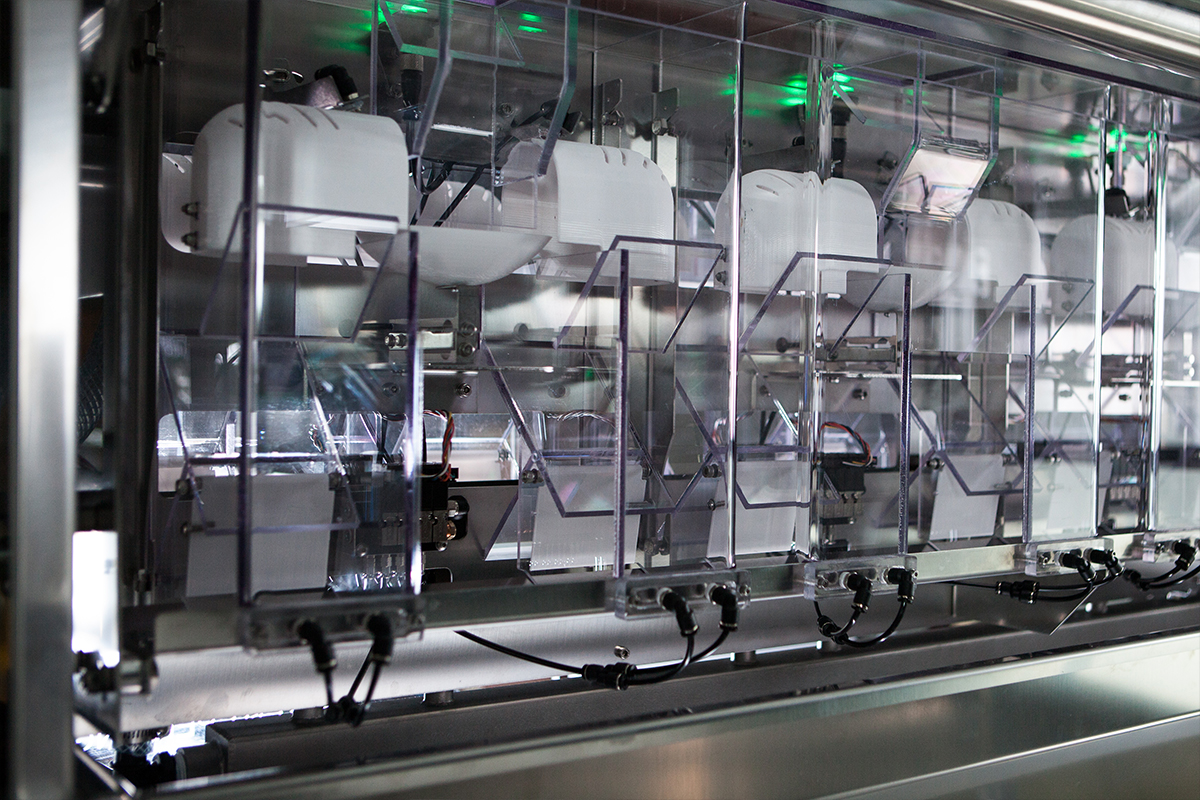
So, you can see these are two very different products we’re talking about. While it might not matter if you were batching peanuts, could you imagine batching eighths of cannabis, which should be 3.5 grams, but instead routinely giving your clients 4 grams?
Or worse, how about selling them 3.5 grams (an eighth), only for them to find out its really 3 grams, leaving them feeling like they’ve been short-changed. Now you’re either losing money as a business by giving away your product or losing customers because they’re upset they’re not getting what they’re paying for. Not to mention potential legal woes associated with cheating your customers.
Ok, perhaps that example wasn’t obvious enough, so let’s extrapolate it.
Let’s say you work in Denver, where according to Leafly, the average gram cost $7.80 in 2018. Your operation packages 100 pounds of your flower to sell to your clients, all in 3.5-gram packages (eighths).
A multi-head weigher, with a weight tolerance of 0.5g, can be plus or minus that amount (3.0g – 4.0g), with no way to increase that consistency.
So, you might find that your machine produces 4.0-gram packages all day, meaning an extra 0.5 gram per package, giving you 11,200 packages of flower at a value of $305,760 priced at the $7.80 market value we mentioned earlier.
Now, with an industry-born piece of equipment like the Precision Batcher, with ultra-tight tolerances down to 0.01 (actually goes to 0.001 but it’s rounded to 0.01 for simplicity), you are assured of getting 12,619 packages of 3.5 grams from that same 100 pounds of flower, with the variances between 3.50 grams and 3.52 grams.
At the $7.80 price per gram, that means you have $344,518 in market value, an increase of $38,758 over the multi-head weigher. And that is just the possible variance in a 100-pound run.
Most large cultivators, who utilize these types of machines, produce at levels drastically higher and those numbers only continue to distance themselves as the amount of production grows.
So, why is industry-born equipment, the topic of this blog post, important to this machine comparison? Well, the multi-head weigher is a crossover machine, meaning it was developed for products like jellybeans, almonds, peanuts, and so on. Items where the exact weight isn’t as important because the value of the product being harvested isn’t very high.
Compare that to the Precision Batcher, which was developed to specifically deal with cannabis, a high-value product at any weight, so the tolerances are more specific and the consistency is basically a guarantee.
But wait. There’s more. What about how the product is moved through the machine? Surely there couldn’t be another important distinction there, right?
Wrong, most multi-head weighers were designed to process material like jellybeans, almonds, or peanuts. Products that are hard-shelled and can stand being treated roughly through the batching process with no impact on the final product quality.
I know what you’re thinking, “Cannabis isn’t the same as jellybeans, almonds, or peanuts. It doesn’t have a hard shell and needs to be treated completely different.”
You are 100% correct! Which is why the Precision Batcher uses a patented AirKush technology to move the flower through the machine with tiny puffs of air. Is there anything more gentle than a tiny puff of air?
As if that’s not enough to distinguish the massive difference between these two types of machines, the Precision Batcher also lets the user define the variety of flower size per package.
For example, you can set the Precision Batcher to include one large nug, a couple of mediums, and some smalls in every bag. This ensures your clients get the same package and experience no matter what location they visit or when they buy from you, making this a customizable option truly unique to the Precision Batcher.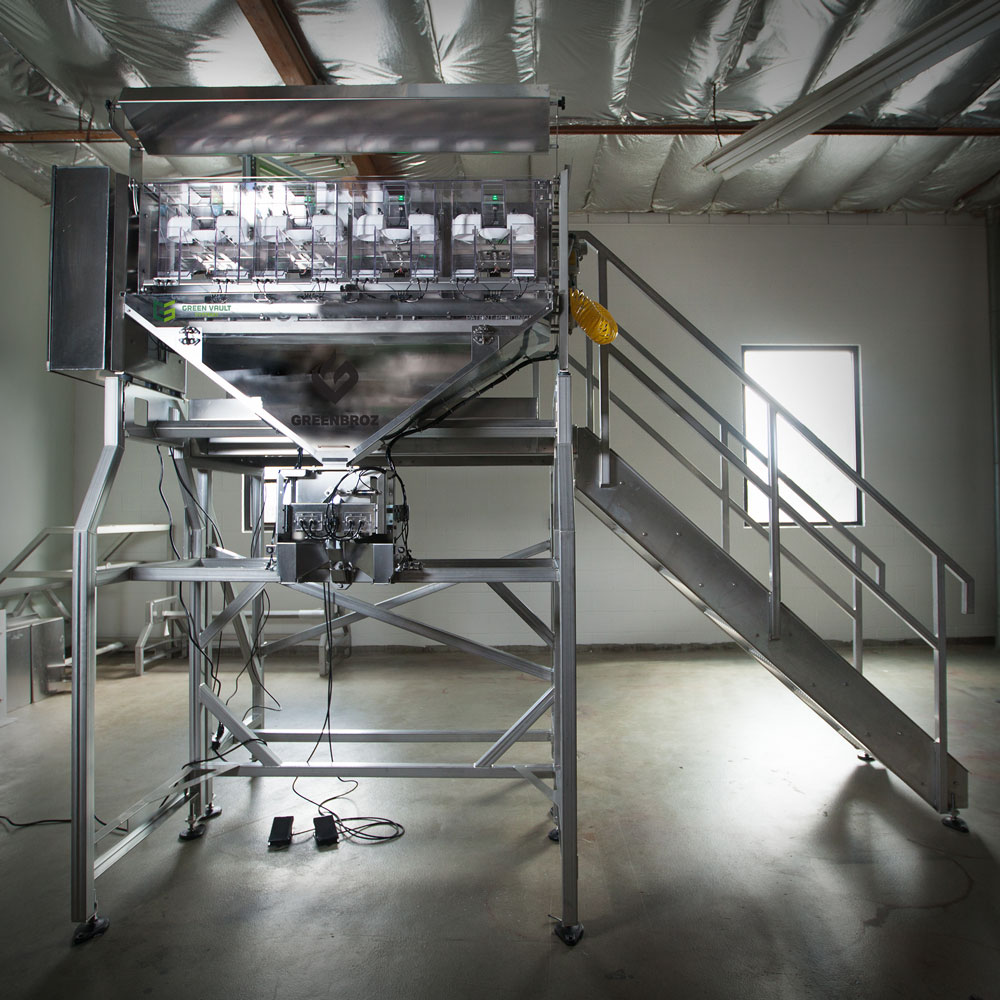
Heck, even on a good day you might get them all within an acceptable range. But, on a bad day, your business could lose thousands of dollars. And that’s a lot of ‘maybes’ and ‘mights’.
I don’t know about you, but maybe and might are scary words for a business owner to hear, and certainly not words on which you would want to build your business. In an industry as crazy as the cannabis and hemp space, there are enough ‘maybes’ and ‘mights’ to where you don’t need to add more with machinery that won’t produce what you need it to produce.
So do yourself a favor when you consider adding any machine to your harvest process. Ask if that machine was built specifically for the cannabis or hemp plant because that’s what you’re selling and it’s a high-value item, unlike anything the agricultural market has seen in a long time.
With industry regulations and competition tighter than we’ve ever seen in this industry, and only getting more so, these cost-differences can be the deciding factor between a profit margin and a deficit – between retaining customers or losing them due to inconsistency, between growing your business and closing your business.
Cleaning
Due to the multitude of product strains in the cannabis space, and the consequential need for frequent change-over and sanitization in between runs, cleanability is a whole separate topic, and one not common to other industries.
The Precision Batcher is designed with this in mind, with very few moving parts, and easy, toolless sanitation process that takes only minutes. In contrast, multi-head weighing machines take hours to disassemble and sanitize between strains.
As rules and regulations continue to tighten, cleanability is not the only important factor, but the speed at which you can clean and return to processing between strains to prevent cross-contamination is a consideration that Green Vault Systems, creators of the Precision Batcher, have made a priority.
Because of this consideration in the design and manufacturing phase, the Precision Batcher offers an unrivaled cleaning experience that will keep your harvest process as streamlined and efficient as possible.
Conclusion
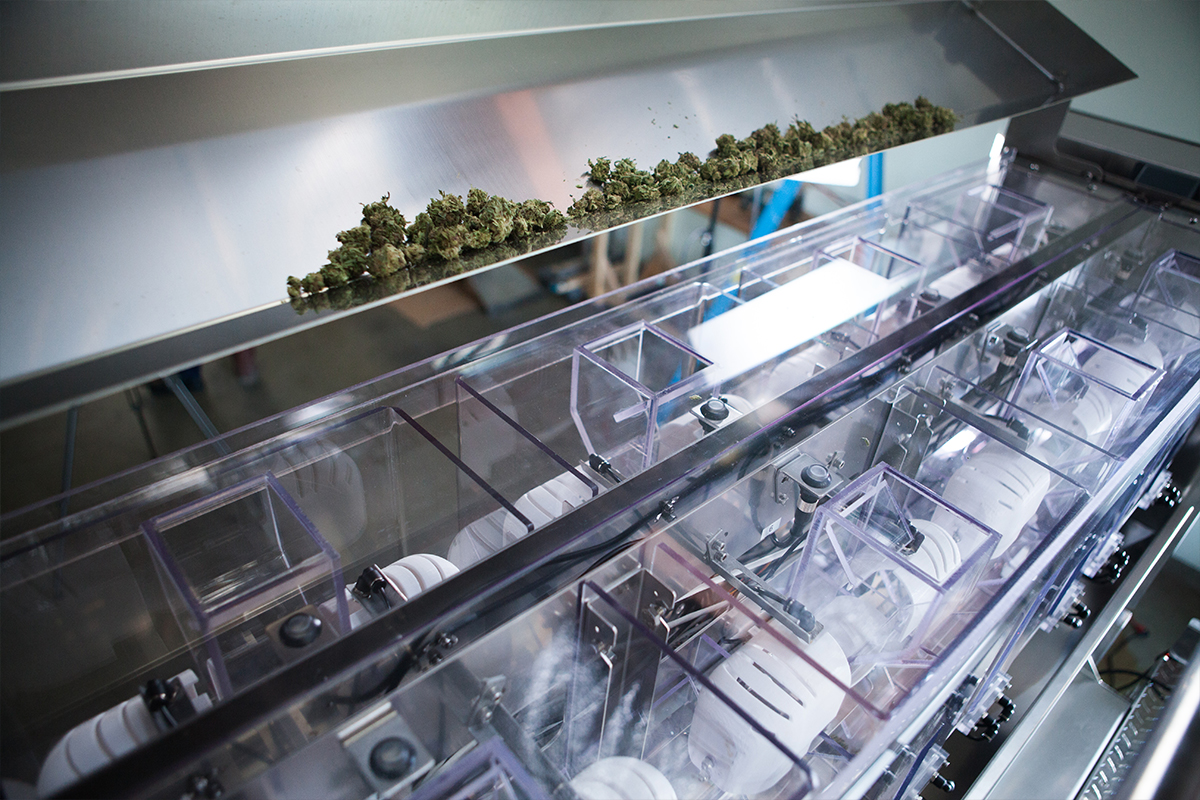
For example, you can set the Precision Batcher to include one large nug, a couple of mediums, and some smalls in every bag. This ensures your clients get the same package and experience no matter what location they visit or when they buy from you, making this a customizable option truly unique to the Precision Batcher.
Sure, with a multi-head weigher tolerance of 0.5g, maybe you get the majority of your packages close to your desired weight, though some might be large flowers while others consist of small nugs and shake (which will certainly impact customer retention rates over time).
Heck, even on a good day you might get them all within an acceptable range. But, on a bad day, your business could lose thousands of dollars. And that’s a lot of ‘maybes’ and ‘mights’.
I don’t know about you, but maybe and might are scary words for a business owner to hear, and certainly not words on which you would want to build your business. In an industry as crazy as the cannabis and hemp space, there are enough ‘maybes’ and ‘mights’ to where you don’t need to add more with machinery that won’t produce what you need it to produce.
So do yourself a favor when you consider adding any machine to your harvest process. Ask if that machine was built specifically for the cannabis or hemp plant because that’s what you’re selling and it’s a high-value item, unlike anything the agricultural market has seen in a long time.
With industry regulations and competition tighter than we’ve ever seen in this industry, and only getting more so, these cost-differences can be the deciding factor between a profit margin and a deficit – between retaining customers or losing them due to inconsistency, between growing your business and closing your business.
For more information on automated cannabis packaging, including the GreenBroz Precision Batcher, contact GreenBroz at 844.379.8746 or GreenBroz.com.







